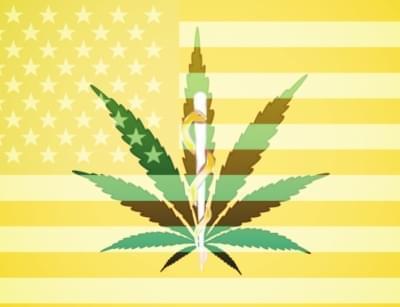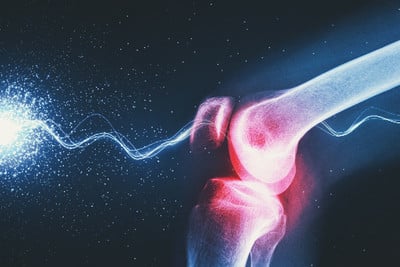.

Using Medicinal Cannabis To Fight The Opioid Crisis
Opioid addiction is claiming tens of thousands of lives annually in the United States alone. The states with progressive cannabis laws are seeing the tide turn in the fight against opioids. Is it right to conclude that cannabis treatment is a crucial piece of the puzzle?
The Centres for Disease Control and Prevention have laid out the stark cost of the opioid crisis.
They estimate that 63,000 people in the US died in 2016 from causes related to opioid addiction. This is being fuelled not only by the trade of hard drugs, but by prescription practices in the United States.
In recent years, doctors and therapists have over-relied on prescribing opioid-derived medications. There is speculation over how much of this comes down to financial incentives offered by pharmaceutical companies. While medication is certainly appropriate for some people, it has contributed in part to a terrible epidemic.
An unlikely solution has emerged from another federally-prohibited Schedule 1 substance.
WHY USE CANNABIS TO TREAT OPIOID ADDICTION?
Patients often adjust to prescribed levels of opioids and end up requiring more. Or they abuse their prescriptions to feed an addiction. Or in fact, it becomes a gateway drug to heroin, methamphetamines, and other opioids.
In order to stop the reward centres of the brain from feeding this cycle of addiction, cannabis may actually be effective. Cannabis disrupts the reward mechanism by which opioids hijack the brain. Phasing in the use of cannabis while phasing out the use of opioids has proven effective, particularly when seeking to manage chronic pain conditions. Cannabis has never caused fatalities and is a much safer option for treating chronic pain.

THE NUMBERS
Mounting research is proving these theories to be viable and efficacious. Aclara Research surveyed[1] over 400 patients and 500 pharmacists. 67% of patients with access to medical marijuana were able to completely eliminate opioid use. Another 29% were able to reduce their opioid use through using marijuana. Out of this sample, a total of 30% were able to comfortably cease the use of prescription pharmaceuticals altogether. Another study in the Journal of Pain surveyed[2] 244 medical marijuana patients in Michigan. This sample of chronic pain patients reported a 64% decrease in opioid use.
Every state where marijuana laws have been liberalised are reporting fewer opioid-related deaths and lower opioid-addiction rates. Research from JAMA Internal Medicine confirmed this. They reported that “states with medical cannabis laws had a 24.8% lower mean annual opioid overdose mortality rate compared with states without medical cannabis laws”. The policy evidence seems to be there that opioid addiction could be legitimate grounds for cannabis treatment. Will the current US government be moved by this?
WILL GOVERNMENT POLICY CHANGE?
The Trump administration's relationship to evidence-based policy has been called into question. The appointment of staunchly anti-pot Attorney General Jeff Sessions was a particular cause for concern.
There was initial fear that state-level legalisation of cannabis would be rolled back under Trump. Now, Trump is claiming that he will support legislative measures to reform federal marijuana laws. If he sticks to this, this would be an easy win for him. It would satisfy pro-marijuana progressives and "states rights" conservatives alike. Having declared the opioid crisis a public health emergency, the Trump administration should look into this.
This is even the view of former House Speaker John Boehner. Having staunchly opposed marijuana for years, he has since become convinced of its usefulness in fighting opioid addiction.
It is an encouraging sign that conservatives who long held black-and-white views on cannabis may be persuaded by the medical evidence. The next step is for state medical marijuana programmes to include opioid addiction as a qualifying condition. Let's be optimistic and say this will happen; what would it mean for patients who want to curb their opioid use?
PREPARING FOR MEDICAL CANNABIS USE
If you want to use medical cannabis to ween off opioid medicines, you may not have a supportive doctor. Urge them to re-examine the research as it relates to opioid use. If you can't convince them, it may be possible to find a medical professional with more direct knowledge of cannabis.
Prescribed cannabis treatment depends on a delicate balance of dosages. It is especially dangerous and potentially fatal to increase opioid use after an initial reduction. Medical professionals will expect you to take the cannabis use seriously.
A strain with a 1:1 ratio of THC to CBD will most likely be prescribed. Anti-inflammatory, anti-anxiety, and pain-reducing effects will be boosted. Your medical professional will advise you on tapering down opioid use. The adjustment will require small amounts of cannabis at first with a gradual increase over time. A disciplined approach and consistency is key. Hopefully, this will be a widely available medical treatment in the years to come. Writing to your legislators about this wouldn't hurt.
- Medical marijuana may help end opioid epidemic, experts say https://www.ajc.com
- Medical Cannabis Use Is Associated With Decreased Opiate Medication Use in a Retrospective Cross-Sectional Survey of Patients With Chronic Pain - PubMed https://www.ncbi.nlm.nih.gov











































